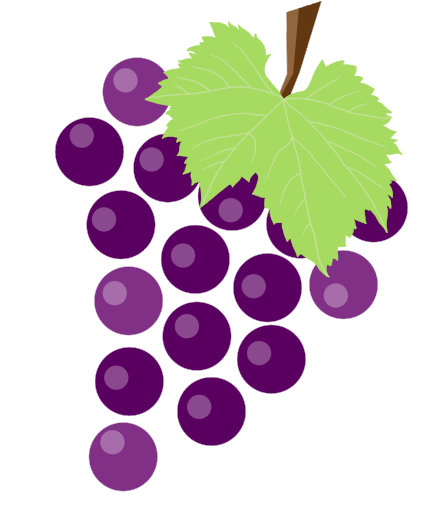Basically it rejects the whole western diet and way of eating. It calls for eating many things raw—meat, milk, seafood etc. And the list of things not to eat was mind boggling.I only read a bit of the book, but the whole thing seems to be based on indigenous people's diets and the author believes that many of our illnesses today are due to our diet.
Well, I just couldn't read much more because I found it overwhelming. To eat the way they describe would be very challenging in our society. And I found it discouraging that most of the things I eat were on the "don't eat" lists.
I am posting about this here for a couple of reasons. First, I think that some of the people on this list have really well thought through opinions and I really respect that. I view myself as a smart person, but I also have a habit of seeing things from every side which ends up confusing me. Does anyone actually eat a diet similar to this one and how does it mesh with your unschooling lifestyle?
Part of me thinks that "ignorance is bliss" and I feel pretty healthy as I am! But then part of me wonders if I should explore it more -- after all, unschooling is certainly not the norm in our society and I am very glad that I have pursued my interest in it.
Joanna Murphy responded: The information you are talking about is promoted by [a particular foundation...]. We do keep these principles in mind in our diets, and I know many other unschooling families that do as well. We've actually had a small slew of minor, and a few major, complaints clear up with this stuff, and so have many others I've known.
All that being said, we all make our own choices and have lots of conversation about food. I mesh the principles in as it makes sense, being the main cook and purchaser in the house, and we work to find foods that satisfy and bring pleasure to our lives, like many families on this list do. If you are asking whether we "impose" this diet on our children, the answer is no, and that would also go for the other unschooling families that I know well enough to know that sort of thing.
Joanna
Joyce Fetteroll responded: I suspect one of the immediate advantages of rawism that makes it seem like a good thing is that people consume a lot more fruits and vegetables. That *is* a good thing in terms of fiber and bulk and vitamins and minerals. You probably will feel better. But you can get that also by ... consuming more raw fruits and vegetables. 🙂
This seems to be a really good site:
Beyond Vegetarianism - transcending outdated dogmas
http://www.beyondveg.com/index.shtml
Lots of links to real research. On the research page is:
Research-Based Appraisals of Alternative Diet Lore
Comparative Anatomy and Physiology Brought Up to Date: Are humans
natural frugivores/vegetarians or omnivores/faunivores?
The rationale for vegetarianism based on similarities with apes or differences with carnivores has long been a cornerstone of the philosophy for many adherents. However, the supporting arguments have changed little for over 25 years now. Given that scientific study has advanced tremendously during that time, an update has been long overdue. This extensive tour provides an in-depth look at the numerous and intriguing problems involved, including an examination of the much more rigorous analytical techniques of recent comparative studies. Whether or not you're pleased with what the evidence points to, you're sure to come away with fascinating insights into the complex mix of factors involved in determining the diet that the human species is most naturally adapted to._____(And then lots of links)
and
_____
Schuyler Waynforth wrote:
My mom just sent David a book called The 10,000 Year Explosion, by Gregory Cochran and Henry Harpending. I really like Henry Harpending's work. They've got a website up for the book: The 10,000 Year Explosion
Anyhow, the book is based on the idea that not only did humans not stop evolving 10,000 years ago, or 50,000 as some people posit, but that through civilization we've accelerated change through evolution. They use dogs as an example of rapid evolution. Dogs have been domesticated for roughly the same time as humans have been farming. The traits that they carry as dogs are derived from the genetic traits that a wolf has, but adapted in ways that are appropriate for their environment. So, a border-collie's hyper herding instinct is derived from wolf game-herding patterns, but is exaggerated as it was the herding that made the dog best suited to the environment of a shepherd's dog. They also point out that some wolf traits have disappeared either entirely in dogs, like regurgitating food for their puppies, or having male parental care, or traits that have disappeared in most breeds of dogs, like digging birthing dens or having a specific time of year when they go into season. The point of the comparison is to say: "[a]ny adaptation, whether physical or behavioral, that loses its utility in a new environment can be lost rapidly, especially if it has any noticeable cost. Fish in lightless cave lose their sight over a few thousand years at most—much more rapidly than it took for eyes to evolve in the first place."
So that sets the stage for the idea that the Inuit are less adapted to a farmed diet, whereas those of us who have not recently come from a hunter-gatherer or a horticulturalists society are much more adapted to these diets. They write: "There is every reason to think that early farmers developed serious health problems from this low-protein, vitamin-short, high-carbohydrate diet. Infant mortality increased, and the poor diet was likely one of the causes. You can see the mismatch between the genes and the environment in the skeletal evidence. Humans who adopted agriculture shrank: Average height dropped by almost five inches." They continue with "There are numerous signs of pathology in the bones of early agriculturalists. In the Americas, the introduction of maize led to widespread tooth decay and anemia due to iron deficiency, since maize is low in bioavailable iron. This story is not new: Many researchers have written about the health problems stemming from the advent of agriculture. Our point is that, over millennia, populations responded to these new pressures. People who had genetic variants that helped them deal with the new diet had more surviving children, and those variants spread: Farmers began to adapt to an agricultural diet. Humanity changed.
They argue that the increased incidence of diabetes among populations who have never farmed or that haven't farmed for long is a consequence of a lesser degree of adaptation to high-carbohydrate diets. It would take time to undo the changes that our changed environment has wrought, maybe the thousands of years that it takes for fish to go blind. And while we probably still have some of the genetic predispositions of our pre-agriculture forebears, more or less depending on who they were and how they subsisted, most of us are fairly well adapted to the diet of agriculture.
I (Sandra Dodd) asked this question on my facebook page July 29, 2017, and got over 127 comments. If you can get to facebook, it might still be there. The original post is:
Anthropologists, biologists, historians, logical people:Where, historically or currently on this planet, have vegetarians lived, in groups, culturally as vegetarians?
The only groups I can think of offhand are Brahmins, Buddhist monks, and Shakers. Shakers didn't reproduce. Buddhist monks don't reproduce.
[note after reading some of the comments. I forgot Jains, in India. And some Buddhist monks eat meat.]
In another (public) topic elsewhere, someone I don't know posted, "We are not designed to be omnivores. We are designed to be plant eaters. We are the only species who eats outside of our designed way of eating, hence, this is why we have so much diseases like heart disease, cancer, diabetes, osteoporosis etc."
-=-our designed way of eating...-=-
Designed by... alien overlords?
God? Which god?
By Darwinian evolutionary theory?-=-We are not designed to be omnivores.-=-
Designed...
I don't care who responds, but I would prefer actual earth information over wishful justification for current fads.

When Food becomes a Religion

Food and Eating

Thoughtful Parenting

"Building an unschooling Nest"

